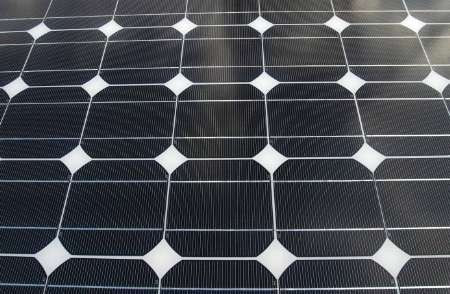Boeing Subsidiary Mass Produces Record-Breaking Solar Cell

Spectrolab, a subsidiary of Boeing, has started mass production of its newest terrestrial solar cell, offering efficiencies higher than any previous models, the company says.
The photovoltaic cell, called the C3MJ+, has an average conversion efficiency of 39.2 percent. Typical photovoltaic cells have efficiencies in the 10-20 percent range.
The cells themselves are made of gallium arsenide, a material typically used in solar cells for powering spacecraft. In this case, each cell has a layer of material that is sensitive to a different wavelength of light.
Typically, solar cells have only a few layers or even just one. While some of the solar energy that hits it is turned into electric current, much of the light energy is simply reflected away or given off as heat. Spectrolab constructed a cell with 20 different layers, each with its own type of semiconductor material. The different semiconductors are all sensitive to differing wavelengths, allowing the cell to capture more sun's energy.
The cell was first developed in February 2008 as part of the Solar America Initiative, now renamed under the latest Administration as the Technology Pathways Program.
As an SAI/TPP partner, Spectrolab participates with the U.S. Department of Energy and other industry organizations, national laboratories and universities to perform research and development and develop cost-competitive solar energy systems.
© Copyright IBTimes 2025. All rights reserved.





















